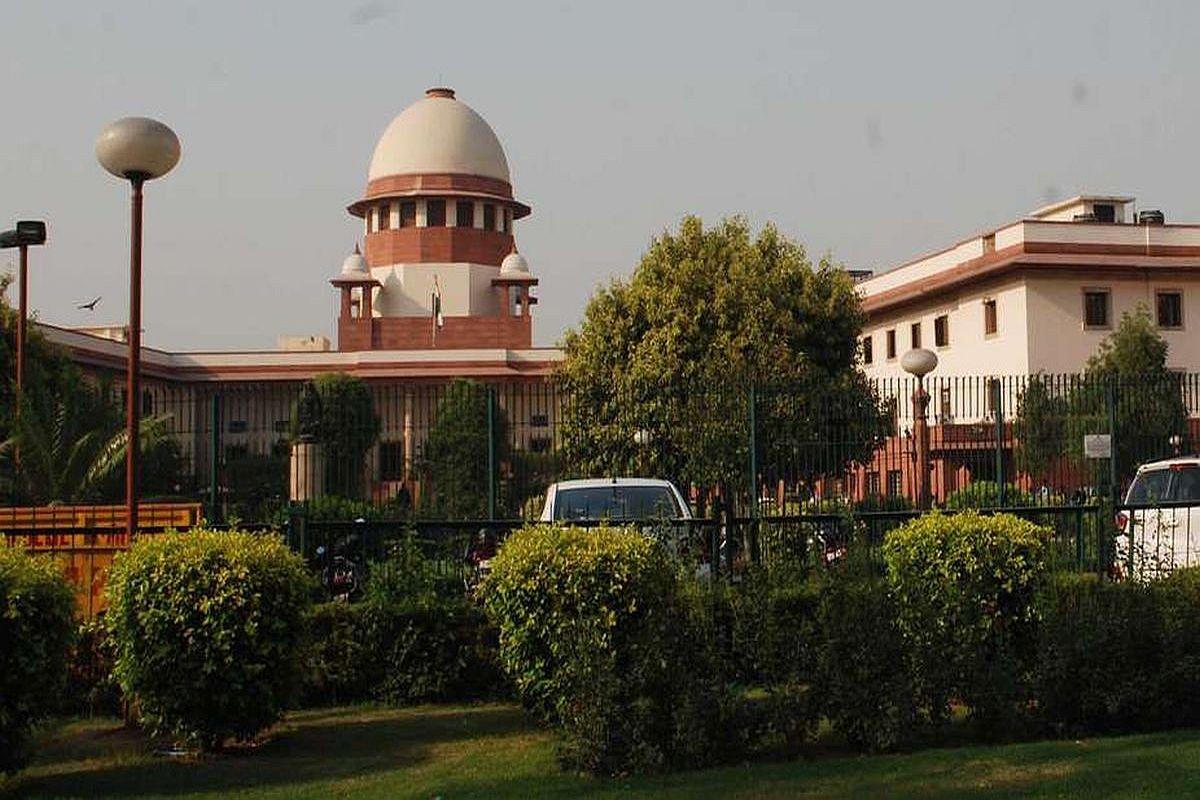India’s Got Latent: SC issues notice on YouTuber Ashish Chanchlani’s plea against FIRs
SC issues notice on YouTuber Ashish Chanchlani’s plea to quash or transfer FIR in India’s Got Latent case; tagged with Ranveer Allahabadia’s petition.
The Centre and the Election Commission had taken contrary stands in the Supreme Court on Wednesday over political funding.

Supreme Court (Photo: SNS)
The Supreme Court on Friday asked all political parties who have received donations through electoral bonds to submit in sealed cover to the Election Commission details of donations received.
The top court in an interim order, directed all political parties to give details of donors who donated through electoral bonds, amounts received from them, details of payment received on each bond etc. to the poll body by May 30.
Advertisement
The apex court said it would examine in detail changes made in Income Tax law, electoral law and banking laws to make them in consonance with the electoral bond scheme and ensure balance does not tilt in favour of any political party.
Advertisement
It also directed the Finance Ministry to reduce the window of purchasing electoral bonds from 10 days to five days in April-May and said it would fix a date later for final disposal of the petition filed by an NGO.
The NGO has challenged the validity of the scheme and sought that either the issuance of electoral bonds be stayed or names of donors be made public to ensure transparency in the poll process.
The order was pronounced by a bench comprising Chief Justice Ranjan Gogoi and Justices Deepak Gupta and Sanjiv Khanna.
The government had notified the Electoral Bond Scheme 2018 on January 2, 2018.
As per provisions of the scheme, electoral bonds may be purchased by a person, who is a citizen of India or incorporated or established in India.
A person being an individual can buy electoral bonds, either singly or jointly with other individuals.
Only political parties registered under Section 29A of the Representation of the People Act, 1951 and which secured not less than one per cent of votes polled in the last general election to the House of the People or the Legislative Assembly of the State, shall be eligible to receive electoral bonds.
As per the notification, electoral bonds shall be encashed by an eligible political party only through a bank account with an authorised bank.
The Centre and the Election Commission had taken contrary stands in the Supreme Court on Wednesday over political funding with the government wanting to maintain anonymity of donors of electoral bonds and the poll panel batting for revealing names of donors for transparency.
The bench on Thursday had reserved the order, saying if the identity of the purchasers of electoral bonds meant for transparent political funding was not known, then efforts of the government to curtail black money in elections would be “futile”.
The Centre, through Attorney General KK Venugopal, had vehemently supported the scheme saying the purpose behind it is to eliminate the use of black money in elections and asked the court not to interfere with it at this stage and examine whether it has worked or not only after the elections.
However, advocate Prashant Bhushan, appearing for Association of Democratic Reforms (ADR)’, had said the scheme has nothing to do with the effort to curb black money and it opens the banking means also to donate by remaining anonymous.
During in an earlier hearing, Bhushan had claimed that the party in power was the major beneficiary of the scheme.
The EC, represented by senior lawyer Rakesh Dwivedi, had opposed Centre’s submissions and said secrecy allowed in the electoral bonds scheme “legalises anonymity”.
The bench had also observed, “If the identity of purchasers of bonds is not known then there will be greater ramification on the Income Tax law and all your (government’s) efforts to curtail black money will be futile”.
Venugopal had also said the anonymity of donors of electoral bonds is to be maintained for various reasons such as fear of repercussions on a firm or an individual if the other political party or group wins.
The Attorney General had also said: “Historically, black money is used in elections. This is a reformatory steps. The scheme can be examined after the elections.”
In its affidavit, the Centre had said electoral bonds “attempt at bringing greater transparency, ensuring KYC compliance and keeping an audit trail in comparison to the earlier opaque system of cash donations.
(With PTI inputs)
Advertisement